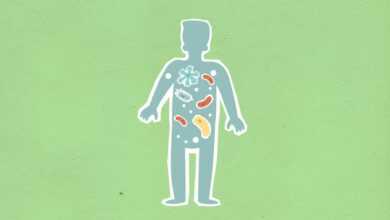
Breaking the Silence: Reclaiming Mental Wellness in a Modern World of Manhood
For generations, the image of manhood has been shaped by stoicism, strength, and emotional control. “Man up,” “boys don’t cry,” and countless other phrases have instilled in men the expectation to bottle up their emotions, presenting an unyielding facade to the world. But this outdated ideal comes at a devastating cost, contributing to higher suicide rates, increased substance abuse, and a disconnect from emotional well-being. However, in today’s modern world, a powerful conversation is shifting this paradigm.
The silence surrounding men’s mental health is slowly cracking. From celebrities like Dwayne “The Rock” Johnson and Kevin Love openly discussing their struggles with depression to movements like the #BellLetsTalk campaign encouraging open dialogue, men are increasingly finding their voices. These examples serve as powerful testaments that vulnerability is not weakness, but rather a crucial step towards healing and growth.
Ignoring mental health issues has severe consequences. Men are four times more likely to die by suicide than women, often due to the stigma surrounding seeking help. The pressure to conform to the traditional masculine ideal can lead to unhealthy coping mechanisms like substance abuse, isolation, and self-destructive behaviors. This not only impacts individuals but also ripples through families and communities.
So, how can men break the silence and reclaim their mental wellness? Here are some concrete steps:
1. Know the Signs: Educate yourself on the signs of stress, anxiety, and depression. Be mindful of changes in mood, sleep patterns, appetite, and energy levels. Early identification is crucial for seeking help before issues escalate.
2. Normalize Therapy: Therapy is not a sign of weakness; it’s a proactive step towards self-care and emotional well-being. Seeking professional help is a courageous act of self-investment, just like going to the gym for physical health.
3. Build Strong Connections: Men often underestimate the power of social support. Talk to trusted friends, family members, or fellow men’s groups. Sharing your experiences and challenges can create a sense of belonging and understanding.
4. Embrace Healthy Coping Mechanisms: Develop healthy ways to manage stress and difficult emotions. Exercise, mindfulness practices, and creative outlets like writing or music can offer powerful tools for emotional regulation.
5. Redefine Masculinity: Let go of the outdated masculine ideal and embrace a definition that incorporates emotional authenticity and vulnerability. A “real man” is someone who takes care of himself, both physically and emotionally, and prioritizes his well-being.
This journey doesn’t have to be taken alone. Numerous resources are available to support men on their path to mental well-being. Websites like Movember, The Jed Foundation, and Men’s Health Network offer information, resources, and support groups specifically designed for men. Remember, prioritizing your mental health is not just about you; it’s about building a stronger, healthier future for yourself, your loved ones, and your community.
Call to Action:
Join the conversation. Share your story. Break the stigma surrounding men’s mental health. Together, we can create a world where men feel empowered to prioritize their well-being and redefine what it means to be a man. Let’s reclaim mental wellness, not just for ourselves, but for the next generation of men.
Additional Points:
- Consider including personal anecdotes, quotes from experts, or statistics to strengthen your message.
- Tailor your writing style to resonate with your target audience (e.g., young men, fathers, etc.).
- Encourage readers to take specific actions (e.g., share the article, talk to someone, seek help).
- Remember, it’s okay to not have all the answers. The important thing is to start the conversation and encourage men to prioritize their mental well-being.
By taking these steps, we can build a world where men feel empowered to express their emotions, seek help when needed, and thrive in all aspects of their lives.




